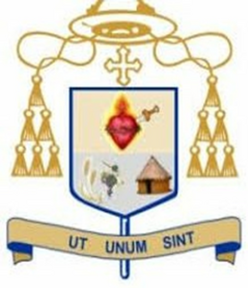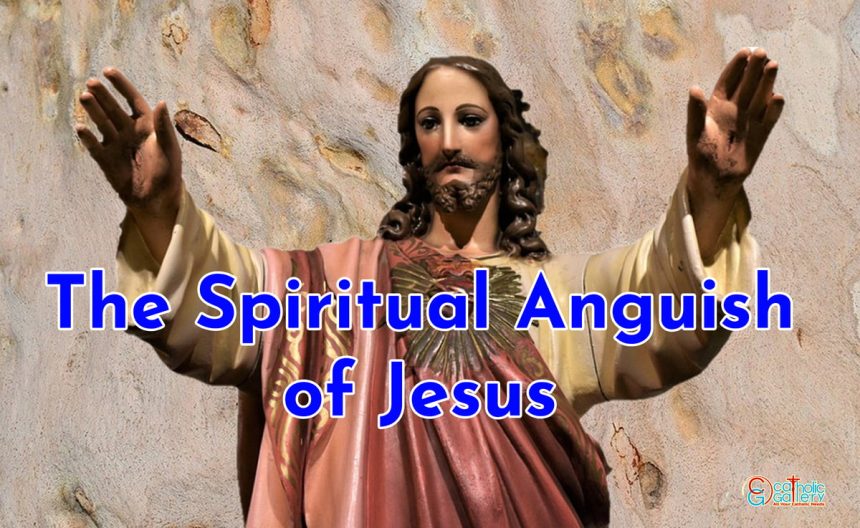“Eli, Eli, lema sabachthani?” -Matthew 27:46
The month of June is a well-deserved period of reflection for all Christians after the events of the Holy Week and beyond. Many of us still remain sceptical and confused over the mystery of the trans-substantiation of the Body and Blood of Jesus, the promise of eternal life to those who live and believe in Jesus, and even the significance of the Blood and Water that flowed from His heart when the soldier pierced His side with a lance. We get a chance to delve deeper into these mysteries as we celebrate the Sundays devoted to Divine Mercy , Holy Trinity and Corpus Christi. All these are signposts that build towards the Friday celebrating the Sacred Heart of Jesus and lead us to experience the intensity of the love of Jesus Christ in its fullness.
The Gethsemane experience
When we reflect on the events of the Holy Week the Cross and the Crucifixion naturally take centre-stage. But besides this, there was one spiritual millstone that seemed to be almost too much to bear for Jesus, inspite of His perfect acceptance of His Father’s Will. We begin to sense this for the first time in Gethsemane, and it is worth going through the detail of that experience in order to get a full sense of His personal anguish that He had never once exhibited until then. And it had very little to do with the prospect of His impending Passion and Death, which He had dispassionately prophesied and discussed several times with His disciples, His followers and even His Jewish adversaries-Matthew 16:21, 17:22-23,, 20:18-19, John 2:19.
The Gospels of Matthew, Mark and Luke give us the finer details of the episode. Jesus took Peter and the sons of Zebedee along with Him to Gethsemane. Once before, He had taken this special trio to witness His transfiguration on Mount Tabor. The celestial experience left them wonderstruck, transported as they were to a heavenly realm from which they returned unwillingly, in obedience to the Master’s command. At Gethsemane, things were different. Jesus was anxious and vulnerable, and needed their presence and prayer support. For the first time He requested them –“My soul is overwhelmed with sorrow to the point of death. Stay here and keep watch with me.”- Matthew 26:38. But the disciples had sunk into a deep sleep. This was not Tabor. This was a serious interlude between God the Father and His Son. There would be no conscious witnesses to this private moment. Jesus fell on His knees imploring the Father repeatedly to take away the cup of suffering confronting Him. Yet His request was always subject to His Father’s Will. There was no answer. The Father’s Will was crystal clear in the echoing silence of the evening. There was no turning back.
Christ’s deepest anguish
One cannot but wonder why Jesus experienced this extreme panic attack about His impending Death on the Cross. Nowhere in the Gospels can we see Him expressing His personal fear or sorrow, and yet, Luke’s Gospel says that, as He cried to His Father, His sweat became like drops of blood, falling down upon the ground. Biblical scholars believe that what overwhelmed Him “to the point of Death” was not the Crucifixion, but the spiritual separation from His Father that would automatically result from taking over the burden of our sins.
The consequences of sin
Genesis 3 tells of the tragic consequences of Adam’s sin. They were shut out forever from Paradise. The fundamental tenet of God’s perfect justice was laid down from the beginning of creation. From then on, the serious consequences of sin have been reiterated by prophets and apostles throughout the Old and New Testament. Isaiah explained this before he prophesied the coming of the “Redeemer from Zion”
But your iniquities have separated
you from your God;
your sins have hidden his face from you,
so that he will not hear.
St Paul summarises it all in one powerful proclamation– For the wages of sin is death-Romans 6:23. Finally, in Revelation , John describes the New Jerusalem coming down from heaven where God dwells with His people forever-Nothing impure will ever enter it, nor will anyone who does what is shameful or deceitful, but only those whose names are written in the Lamb’s book of life. -Rev 21:27
Sin’s weakness and affliction
Jesus knew full well that when He accepted the Cross He would also be subject to spiritual separation from His Father. He never spoke about it publicly even when He prophesied about His impending Death and physical agony. Perhaps the pain and loss was too personal, and also beyond the understanding of His disciples. From the point of His arrest at Gethsemane, Jesus braced Himself to face this. The chief priests and elders hurled numerous accusations against him in front of Pilate but Jesus did not reply to a single charge. Pilate encouraged Him to defend Himself but He refused. He was facing a trial in place of all humanity and He was guilty as accused. As expected, He was handed over to be crucified. He was scourged, crowned with thorns and stripped of His garments, but He went meekly, like a lamb to the slaughter.
The weakness of the burden of sin He carried on His shoulders was already telling on Him. The Way of the Cross that Catholics follow records that He falls three times on His Way to Calvary though this is not found in the biblical account of His Passion. The repeated fall is symbolic of how sin affects the sinner. Finally, He was crucified, hanging from the Cross as a common criminal for the redemption of mankind.
Even on the Cross . the affliction of the sins He carried continued to torture Him. In fulfilment of the Scripture He cried “I thirst.” Jesus had always been the one to provide for those who stood parched and wilting in the mire of their own sins. Whether it was to the Samaritan woman or to the crowds gathered for the Festival of Tabernacles, He offered them all the waters of eternal life.-“Let anyone who is thirsty come to me and drink. Whoever believes in me, as Scripture has said, rivers of living water will flow from within them.”-John 7:37. Now the Savior hung on the Cross as a sinner who was starved of the very living water that once flowed from Him.
Separation and Reconciliation
And this was not the end. The darkest cloud of all was slowly closing in on Him. As the noonday sun darkened and the Earth quaked, He experienced the agonizing separation from God the Father as He cried out in total despair-My God My God Why have you forsaken me? Thankfully, the end came soon as Jesus commended His Spirit to the hands of His Father, confident that His Father would receive Him once the price of Man’s redemption was paid in full.
The sacrifice was complete. The Lamb of God was slain and Man was freed from the shackles of sin and spiritual death forever. As the soldier pierced His side, God the Father’s Divine Mercy flowed from the heart of Jesus in the form of Blood and Water enveloping the whole world in reconciliation and love. The Sacred Heart of Jesus commemorates this great sacrifice of Love. May this journey of sacrificial love guide us to live a life that is worthy of this amazing grace of God.




Leave a Reply